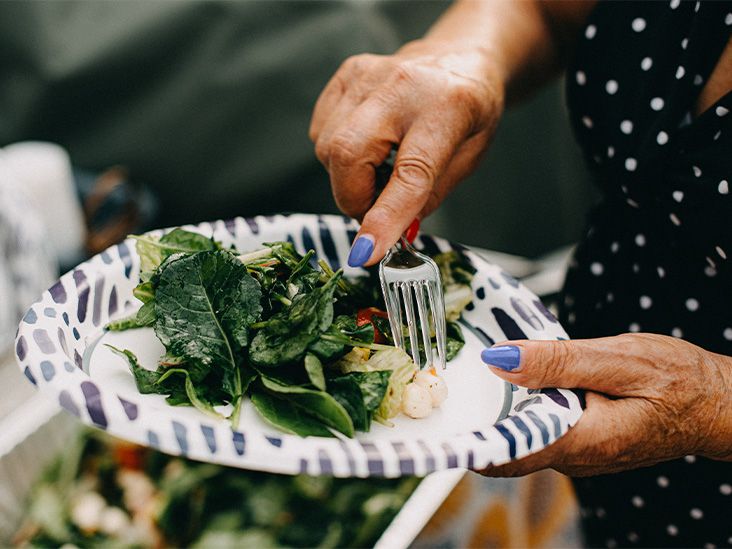There is some evidence that taking probiotics may reduce depression symptoms in some people. However, scientists still have much to learn about the gut microbiome and how it affects the brain.
Probiotics are supplements that contain live microbes. They can include a wide range of different bacterial species, which may interact with each person’s gut flora in different ways.
Research suggests certain types of probiotic may have an effect on mood. However, they may not be as effective on their own as antidepressants.
This article looks at whether probiotics can help with depression, whether they work better than antidepressants, and how the microbiome affects mental health.

There is some evidence that probiotics may reduce depression symptoms.
For example, a
However, a
A
Gaps in research
While the current evidence for taking probiotics for depression is promising, more clinical trials
- which species of bacteria are the most helpful
- what dosage is necessary, and whether this differs based on species
- how long a person should take probiotics for
There is currently no evidence that probiotics alone are more effective than antidepressants. However,
Other research has found that probiotics work more effectively as a complementary treatment, in addition to antidepressants.
Whether a person takes probiotics alongside antidepressants or on their own, it may take some time for either treatment to start working.
Scientists are still learning about the complex relationship between the microbiome and mental health. Researchers refer to this relationship as the gut-brain axis, and it works in a bidirectional manner, where one influences the other.
The authors of a
The review also mentions previous research where taking probiotics or prebiotics did the following:
- increased serotonin in the stool, suggesting an increase inside the body
- decreased catecholamines (stress hormones)
- decreased insulin
- decreased inflammatory substances known as cytokines
Microbiome resources
For more research-backed information about the microbiome and how it affects your health, please visit our dedicated hub.
Probiotics are not a first-line treatment for depression. Depression treatment
However, people may want to try probiotics alongside treatment from a mental health professional. It is important to talk with a doctor about this to check it is safe and that a person is taking a high-quality product.
Alternatively, people can get probiotics from foods, such as:
- plain live yogurt
- kefir
- kombucha
- sauerkraut
- kimchi
- miso
Find out more about foods containing probiotics.
Probiotics may cause side effects for some people. Some side effects include:
People may be able to avoid this by introducing probiotics gradually. If they already take them, reducing the dose may help.
Probiotics may also have some risks. Research on this is still evolving, but some potential examples include:
Small intestinal bacterial overgrowth
There is some concern that taking probiotics under certain circumstances could pose a risk of people developing small intestinal bacterial overgrowth (SIBO), a digestive condition with links to irritable bowel syndrome (IBS).
A
People who already have SIBO may also find probiotics make their symptoms worse, depending on the type.
Harmful byproducts
According to the
For example, some types of bacteria produce D-lactic acid. In high amounts, this
Severe infections
People with compromised immune systems should not take probiotics because the bacteria they contain could become opportunistic, causing an infection.
Learn more about the side effects of probiotics.
Many things affect gut health and the microbiome, such as the following:
- Eating probiotic foods: Eating fermented foods
may positively affectTrusted Source the gut microbiome in both the short- and long-term. - Eating prebiotic foods: Prebiotic fiber occurs naturally in many fruits, vegetables, and whole grains. Prebiotics may help probiotics have a
higherTrusted Source tolerance to conditions in the intestines, such as a low pH. - Reducing stress: A
2018 reviewTrusted Source notes evidence that stress may affect several aspects of digestive health, including intestinal permeability and inflammation. - Getting enough sleep: A 2023 review of past research notes that sleep deprivation can affect the microbiome and may contribute to dysbiosis (imbalanced gut flora). If possible, it can benefit overall health to stick to a regular sleep schedule.
- Avoiding antibiotics: Antibiotics are sometimes necessary, and can be life-saving in some situations. However, taking them too frequently kills the “good” bacteria in the gut, which can lead to dysbiosis.
- Quitting smoking, if a person smokes: A
2018 studyTrusted Source showed that smoking affects the composition of the intestinal microbiome. The researchers suggest that this interaction may contribute to the development of some intestinal conditions, such as inflammatory bowel disease (IBD).
Learn more about caring for gut health.
If someone shows signs or symptoms of depression that do not go away, they should consult a doctor or mental health professional.
National hotlines are also available to provide 24/7 free and confidential assistance via phone or online chat from trained professionals, including:
- Samaritans: Call 877-870-4673 (HOPE).
- Postpartum Support International: Call 1-800-944-4773.
- The National Suicide Prevention Lifeline: Call 1-800-273- 8255 (TALK) to speak with someone from this national network of local crisis centers or use their online chat service.
Help is out there
If you or someone you know is in crisis and considering suicide or self-harm, please seek support:
- Call or text the 988 Lifeline at 988 or chat at 988lifeline.org. Caring counselors are available to listen and provide free and confidential support 24/7.
- Text HOME to the Crisis Text Line at 741741 to connect with a volunteer crisis counselor for free and confidential support 24/7.
- Not in the United States? Find a helpline in your country with Befrienders Worldwide.
- Call 911 or your local emergency services number if you feel safe to do so.
If you’re calling on behalf of someone else, stay with them until help arrives. You may remove weapons or substances that can cause harm if you can do so safely.
If you’re not in the same household, stay on the phone with them until help arrives.
Some research has found a correlation between taking probiotics and reduced depressive symptoms. However, it is still unclear whether probiotics are effective as a standalone treatment for depression or which types or dosages may work best.
People can get probiotics from fermented foods, such as yogurt or kimchi. A wide range of probiotic supplements are also available. However, not all these products are high in quality, and not everyone is safe to take them.
For this reason, it is important to discuss trying probiotics with a doctor first, particularly when taking them for depression.

